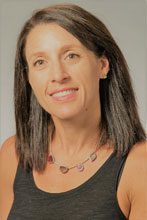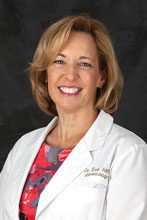 Women’s Wellness Weekend will feature a variety of events including
Women’s Wellness Weekend will feature a variety of events including health and wellness workshops.
health and wellness workshops.
Pick up any women’s health magazine or read any online article on the subject and the topics are almost always the same: stress, work-life balance, how to lose weight, getting more or better sleep, having more or better sex and dealing with age-related issues such as – gasp – the dreaded menopause.
The idea that women are overworked and under cared for is nothing new, but the importance of women’s health – and caring for one’s self in particular – finally seems to be enjoying a moment as the topic has come into its own.
“And I think that the emphasis has shifted on not necessarily being a certain body weight, but the ability to be healthy and strong,” said Denice Fanning (top, left), Healthy Living Programs Director for the YMCA of Beaufort.
Along with Board Certified Gynecologist Eve Ashby, Fanning is among several health professionals who will be on hand for “Women’s Wellness Weekend”coming up at USC Beaufort’s Center for the Arts, March 19 – 22.
The weekend will feature a variety of workshops and activities for women – from financial planning to stress management, literary luncheons and live musical performances – but will shine a light on women’s health in particular.
It’s a subject that may be getting more recognition since women tend to use more health care services than men, according to the Centers for Disease Control and Prevention. What’s more, research has shown that the symptoms or effects of many chronic conditions or diseases look different in women than they do in men.
Take heart attack for instance.
While chest pain or discomfort is the most common symptom in both men and women it is not always the most noticeable, according to the Mayo Clinic. Women often describe their chest pain, if they have any at all, as pressure or tightness and are more likely to have pain in the neck, jaw, shoulder, upper back or have shortness of breath, nausea, vomiting, sweating or other symptoms.
In much the same way, exercise and wellness that’s designed for men won’t always be helpful for women, said Fanning.
“The exercise for a middle age woman is going to impact her differently than a middle age man, and that’s because of menopause and hormonal differences,” she said.
So why is it important for women to know the differences and learn how take care of themselves?
“It’s like what they tell you on a plane,” Fanning said. “You have to put on your own oxygen mask before you can take care of anyone else.”
For women, especially those who are mothers or caregivers, that can be monitoring one’s own stress levels because not managing your stress, or letting it wear you down, tends to impact everything and everyone else around you, Fanning said.
“Whether that impacts your job, your spouse, everything has a ripple effect,” she said. “And so, to prevent the ripples, you have to take care of yourself and learn how to navigate through the stresses of life.”
And often, managing stress goes hand in hand with time management, Fanning said.
“If you don’t have your time under control and organized, that can create additional stress,” she said.
In her workshop, Fanning will provide participants with tools to help them identify what their own specific stressors are and how to better manage those. In addition, she will help participants create a strategic life plan so that they can focus on what is important to them and how stresses and life changes fit in with that.
“And that will be different for everyone,” she said.
Dr. Ashby (top, right), whose workshop will focus on menopause and the changes women go through in their 40s and 50s, also said there are things women can do to help navigate changes that occur in every woman’s life.
For starters, she said, they need to be more proactive in talking with their doctors, finding out what tests – such as cholesterol or calcium or EKG tests– they should have, or if their symptoms are treatable.
“I think we are recognizing that women are not just the same as men, but I think women still need to stick up for themselves more so,” she said.
The symptoms of menopause, for example, can often start years before a woman has her last period and many patients are in their 40s when symptoms can start to become noticeable.
“I hear that in my office constantly,” she said. “ ‘(They say) ever since I turned 40, I can’t get the weight off. Or, ‘Every since I turned 40, I don’t enjoy sex with my husband even though I love my husband,” she said.
In addition, symptoms such as fatigue, anxiety, painful intercourse, weight gain, insomnia and depression, may be treatable individually, either with medication or some other type of therapy or lifestyle change, as opposed to automatically seeking out hormone therapy.
That’s why it’s important to recognize when something is occurring and learn what can be done about it, she said.
Dr. Ashby’s talk will delve into the latest on menopause treatment, the controversies surrounding hormone replacement therapy, who should have it, what are the risks and what are the benefits.
She’ll also talk about other changes, such as weight gain and depression, that women may experience as a result of menopause.
“I really think it’s important for women to take their own health into their hands,” she said, adding that often she sees mothers, wives, or caregivers, who put their own health last.
“They’ll put everyone’s care in front of their own,” she said. “But you can only be as good for your family if you’re OK.”
Want to Go?
The Women’s Wellness Weekend is March 19 – 22, at the Center for the Arts with some events taking place off site. Activities and events will include health and wellness workshops, a wellness fair, literary luncheons, live musical performances, yoga at Waterfront Park, a fitness walk in Port Royal and social events as well. Admission varies; WWW Buttons providing access to all events are available for $15. For more information or to purchase buttons/ tickets, visit www.uscbcenterforthearts.com




